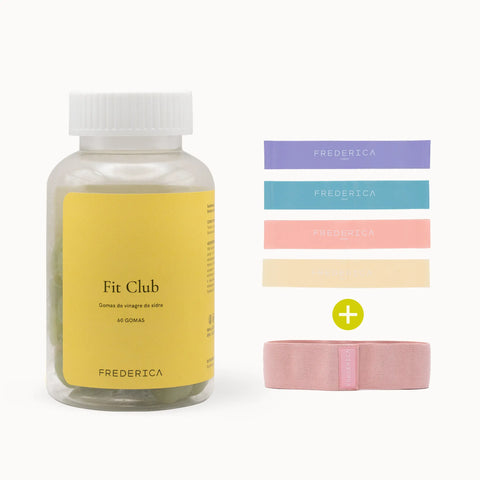Why do I always crave sweets and how can I combat that?
The constant desire to eat sweets or sugar addiction is a complex phenomenon that involves biological, psychological and environmental factors.
Many people consume sugary foods as a way of dealing with negative emotions (emotional hunger), stress or anxiety. Sugar can provide a temporary feeling of comfort and emotional relief.
When we ingest sugar, the brain releases dopamine , a neurotransmitter associated with pleasure and reward, just as happens with substances such as drugs or alcohol. Over time, the brain may begin to demand more sugar to obtain the same level of pleasure, leading to a cycle of compulsive consumption.
Furthermore, our eating habits can also lead to the body feeling constantly in need of sugar. When we always consume foods with a sweeter taste (e.g. cookies, cakes, bars, chocolate after lunch), when we have meals that only contain carbohydrates and do not include fiber, fat or protein (e.g. bread with jam, oatmeal with banana), when we don't exercise or when we have imbalances in our intestinal flora, we may be developing a physiological dependence on sugar, which we urgently need to get rid of.
Consuming sugar and/or simpler carbohydrates quickly increases blood glucose levels, providing a burst of energy . This explosion creates a kind of sense of urgency in our body to “allocate” energy within the cells. Insulin is primarily responsible for this work. When glucose levels drop, feelings of fatigue and cravings for more sugar can occur, creating a cycle of ups and downs that reinforces sugar-seeking behavior.
When we consume excess sugar on a regular basis, insulin resistance occurs , in which muscle, fat and liver cells do not respond adequately to insulin. This means more insulin is needed to help glucose enter cells.
Changing the way we eat is essential to break this vicious cycle! Starting with:
- Make a breakfast with protein, fiber and fat (Ex: omelet with mushrooms):
- Avoid processed snacks with sweeteners that make us addicted to the sweet taste;
- Avoid always snacking and prefer more consistent meals;
- Start main meals with vegetables, soups or salads;
- Always eat complete meals with vegetables, protein and carbohydrates;
- Make snacks with more fat, based on nuts, seeds or even avocado.
Among the research carried out on the topic of sugar addiction, a food has emerged that has caused a lot of talk, cider vinegar.
Consuming cider vinegar before meals has been linked to several health benefits such as:
- Improved Digestion : Cider vinegar can increase acidity in the stomach and the production of enzymes, which allows for more complete digestion and helps prevent the feeling of a bloated belly.
- Controlling Blood Sugar Levels : This may occur due to delayed gastric emptying and increased insulin sensitivity.
- Weight Loss : some research has linked the consumption of cider vinegar to a greater feeling of satiety, leading to a lower caloric intake which allows you to lose weight.
- Antimicrobial Properties : one of the benefits associated with its consumption was the ability to combat the development of pathogenic bacteria in the digestive tract.
Although countless studies are still being carried out in this field, we have been able to understand that changing our eating patterns and including cider vinegar, in a functional way, before meals can have a very beneficial effect on regulating our blood sugar levels. This not only helps free us from this dependence, but can reduce insulin resistance, a very important risk factor for the development of type 2 diabetes.
This is our vision as nutritionists. At MRA Functional Nutrition we work on personalized nutrition by specialty and focus on improving your health as a whole.
Find out more at www.mafaldarodriguesdealmeida.pt .
Text written by:
Mafalda Rodrigues de Almeida
Degree in Nutrition Sciences, Master in Food Policies. Author of the books “Superfoods – meals with more life”, “Equilíbrio – the recipe guide for a healthy intestine”, and “Revitalize – tips and recipes to stay young and healthy” and of the podcast Healthy Food. Specializing in gastrointestinal health and autoimmune diseases, she founded MRA Functional Nutrition.

























